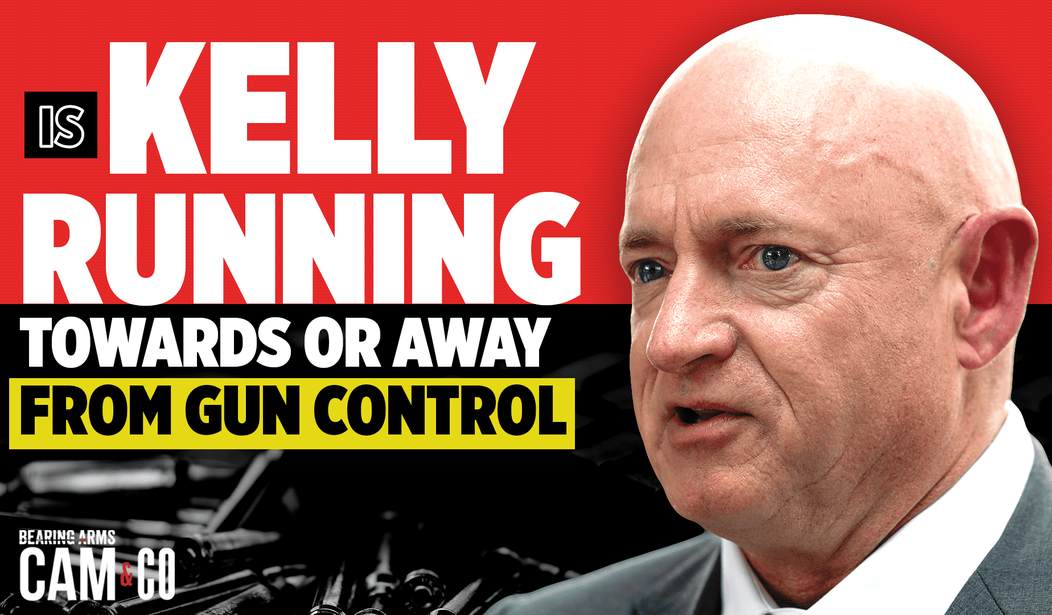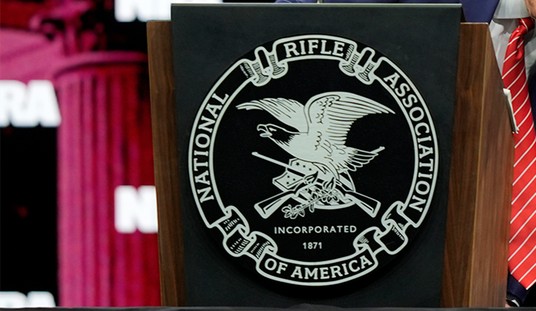As Arizona Democrat Mark Kelly hopes to win a full six-year term in the U.S. Senate this fall, the co-founder of the gun control group Giffords is highlighting his support for things like abortion but isn’t saying much at all about his embrace of an anti-2A ideology.
The U.S. Senate race in Arizona is going to be hugely important to both parties this fall; Republicans are hoping to flip the seat and may very well need to if the party is going to take over the Senate or even hold steady at 50 members, especially with candidates like Dr. Oz trailing by double digits in Pennsylvania. We haven’t seen any polling of the Arizona Senate race since the Republican primary was held and Blake Masters won the GOP nomination over a crowded field, but the election is seen as a toss-up by the Cook Political Report. In such a close race, you’d think that Kelly would be all-in on promoting gun control, especially since Democrats tell us their ideas are so popular, but you’ll find little mention of the issue on Kelly’s campaign website, and the candidate himself isn’t talking about the issue in his campaign ads.
The only mention of gun control I could find on Kelly’s campaign website is in his brief biography, and even that takes pains not to portray his activism as gun “control.”
Mark and his wife Gabby made their permanent home in Arizona in 2012 after he left NASA and retired from the Navy and she resigned from Congress to focus on her rehabilitation and recovery. Mark’s daughter Claire recently graduated from Arizona State University and his oldest daughter Claudia lives in Tucson.
In January 2013, in the wake of the tragic shooting at Sandy Hook Elementary School, Mark and Gabby co-founded the organization ‘GIFFORDS,’ which unites veterans, law enforcement officials, gun owners, faith leaders, and Americans of all stripes to reduce gun violence and make our communities safer.
Kelly’s campaign site doesn’t feature an “issues” section, but it does have all of his campaign press releases archived. Interestingly, Kelly’s campaign said nothing at all about the passage of the Bipartisan Safer Communities Act earlier this summer, even though he voted for the bill, which many Democrats and the anti-gun media were quick to call the first meaningful gun control law approved in decades.
While you won’t find any reference to the gun control bill, Kelly’s campaign has repeatedly touted his support for “abortion rights,” so it’s not like he’s running away from every controversial issue. The Second Amendment and gun control is a very notable exception, one that even non-2A advocates like myself have noticed. In late June, The Atlantic ran a big feature on the “surprising voice missing from gun control talks” and explored some theories about why Kelly hasn’t been an outspoken gun control advocate during his time in the Senate, including the recent negotiations on the Senate’s gun deal.
One is that because Sinema has more seniority than Kelly in the Senate, he would likely defer to her as a negotiator, particularly given her deeper relationships with Republicans needed for a deal. (Aides to Kelly said that he had kept in touch with fellow senators throughout the talks but noted that, despite his years of advocacy outside Congress, most of the other negotiators had more experience navigating the issue within the thorny political dynamics of the Senate.)
A more delicate explanation is that Kelly’s presence at the bargaining table during an election year might have hurt the chances for an agreement more than they would have helped.
None of the four main negotiators—Murphy, Sinema, and Republican Senators John Cornyn of Texas and Thom Tillis of North Carolina—is up for reelection this year; nor are most of the 20 senators who initially endorsed the deal. Democrats believe that Republicans would have been more reluctant to sign on if they saw the negotiation as an effort to boost Kelly, a top GOP target this fall.
Kelly’s arm’s-length approach to gun control is also consistent with how he’s handled the issue since he became a politician, according to Democrats who have worked with him. Despite his biography and experience, he deliberately did not make the issue a centerpiece of his 2020 campaign, nor has he made it a signature issue as a senator. He’s made more national headlines breaking with the Biden administration on southern-border policy and touting legislation to ban members of Congress from trading stocks than he has in championing gun control.
During the 2020 campaign, Kelly and his advisers reasoned that voters were already well aware of where he stood on gun violence, Chase Hardin, a former Kelly aide, told me, so they decided to focus instead on economic issues, like job creation and lowering prescription-drug costs, where his views were less widely known. On guns, Hardin said, “he almost didn’t have to say anything.”
He didn’t have to say anything because, as The Atlantic points out, Republican Martha McSally didn’t bring up gun control until the final few weeks of the election, and when she did finally introduce the topic during their last debate, she didn’t do a great job of focusing on Kelly’s views on gun control and instead tried to go after the gun control group he co-founded with his wife. As I wrote at the time:
As the co-founder of the gun control group that bears his wife’s name, Mark Kelly has a record in support of all kinds of ridiculous gun control laws, but McSally used his ties to the Giffords gun control organization as a way to attach him to far-Left Democrats like Ilhan Omar rather than delving into the policies that Giffords has been advocating for.
Most voters in Arizona don’t care about the congresswoman from Minnesota, and I suspect that trying to tie Kelly to Omar likely fell flat as an attack on the Democratic candidate. A much more effective approach would have been to acknowledge the personal stakes for Mark Kelly in pushing gun control, while pointing out that Kelly’s gun control group is out of step with most Arizonans. For instance, earlier this year Giffords gave California’s gun control laws an “A” rating, while giving Arizona a big fat “F”.
McSally could have followed up with something like, “Mark Kelly may love California’s gun control laws, but we here in Arizona feel differently. In fact, many of you probably know someone who left California and moved here because of how screwy their laws are. If Mark Kelly wants to live in a place with 10-day waiting periods on gun purchases, criminalizes the possession of semi-automatic rifles and 20-round magazines, and has a concealed carry process that allows local sheriffs to deprive almost everyone except for campaign donors of their right to bear arms, he should move there instead of trying to impose California’s gun control laws on every gun owner in Arizona and the rest of America.”
McSally was a lackluster candidate in general, but the way she approached the gun control issue was just plain dumb. Thankfully, I don’t expect Blake Masters to make those same mistakes, especially since he’s familiar enough with guns to build his own. Masters doesn’t have to go after Kelly for co-founding Giffords or wanting to make our communities safer (a goal that gun owners share as well, after all) in order to point out the problems with trying to improve public safety by criminalizing the exercise of a fundamental individual right. Masters can start with the Democrats’ ban on “assault weapons” that passed out of the House earlier this month, as well as the post-Bruen gun control laws put in place in blue states like California and New York, before reminding voters that, even if Kelly doesn’t talk about it much, these are the types of laws he believes Arizona voters (and every other law-abiding gun owner across the land) should have to live under as well.









Join the conversation as a VIP Member